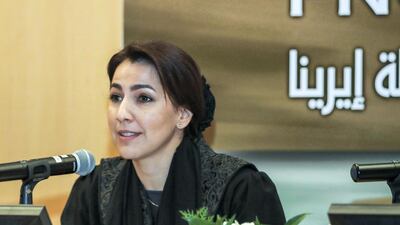Animal venom could be nature's own problem-solver for food security, a global forum in Dubai heard.
An expert said potent poisons from a variety of animals and insects are a viable alternative to harmful pesticides used in mass farming.
Speaking at the World Economic Forum’s (WEF) Global Future Councils in Dubai, Dr Mande Holford, associate professor of chemical biology at the City University of New York, said nature can play a big role in future technologies in agriculture, as well as healthcare.
Scientists are hoping to harness venomous properties in the field of farming, using venomics.
A relatively new scientific field, venomics combines venom research with genomics - the technology used for gene sequencing - to change the way venom is used.
“Venom is an exciting area as it can be used to explain biodiversity and why it is so common in nature,” said Dr Holford. “Venom can also help with food security.
“We know a lot of venomous animals feed on insects naturally.
“So when we are looking at developing bio-insecticides we can look at the properties of venom that is killing these insects naturally.
__________________
Read more:
Dubai environment summit told rapid regional growth has come at huge cost
UAE minister outlines new drive to create 'Silicon Valley' of food production technology
___________________
“We are heading to a precipice point where we will have to change our way of agriculture, and nature-based drugs and pesticides in farming is an amazing way of doing that.”
Scientists have already found marine cone snail venom effective in pain relief for HIV and cancer patients, while viper venom has been used to prevent blood clotting and scorpion venom used in cancer treatment.
Pesticides are used to protect crops from damage by insects, but the chemicals used in them can also have potentially damaging effects on the environment and human health.
The forum also heard how alternative forms of agriculture - using the latest technology - will play a crucial role in preserving food security when climate change makes farming more difficult.
The Pure Harvest greenhouse project near Abu Dhabi is providing a computer-controlled ecosystem for optimal growing conditions in a one-hectare plot.
It has produced its first batch of tomato crops and, if expanded, could be the answer to providing locally grown fresh produce, reducing the need for imported food.
“There has been a large inconsistency over weather patterns during the past few years and we know that is going to continue,” said Sarah Al Amiri, the Minister of State for Advanced Sciences.
“That is impacting on food production. Challenges are ingrained in our agriculture history because of the heat during summers, with scarce water and less access to energy.
“Our ancestors have adapted to climate challenges, and we must now do the same by using technology for more sustainable food production with less water, and less energy.”
The UAE has an ambitious food security plan that aims to cut food waste in half by 2030.
Government ministers also aim to increase domestic agricultural production, with the latest technology central to that.

"We are not just looking at food production, but food processing and logistics across the whole supply chain," said Mariam bint Mohammed Al Mehairi, Minister of State for Food Security.
“The technologies already exist; we just need to upscale them so they can be used by more of us.
“Clean food is very important. If you can produce food here, you don’t need all of the preservatives to keep it fresh for longer when it is imported.
“This will have a huge impact on the health of our communities.”
At a forum on the future frontiers of science and technology in Dubai, researchers also claimed a breakthrough in transporting renewable energy would make it easier to be used on a mass scale.
A major problem in the renewable energy sector is how to transport collected energy from solar and wind farms thousands of miles to where it is needed in major cities.
Energy is lost along the way, but that could change with the development of super-conductive materials cooled to below 100° C.
“Many developed countries are using older technologies that cannot transport electricity a few hundred metres without losing a percentage of energy,” said Suchitra Sebastian, associate professor at the University of Cambridge physics department.
“Adapting this new technology would provide an enormous solution to one of the problems we are currently finding with alternative energy supplies.”


